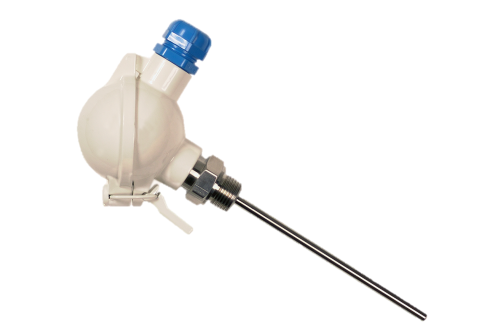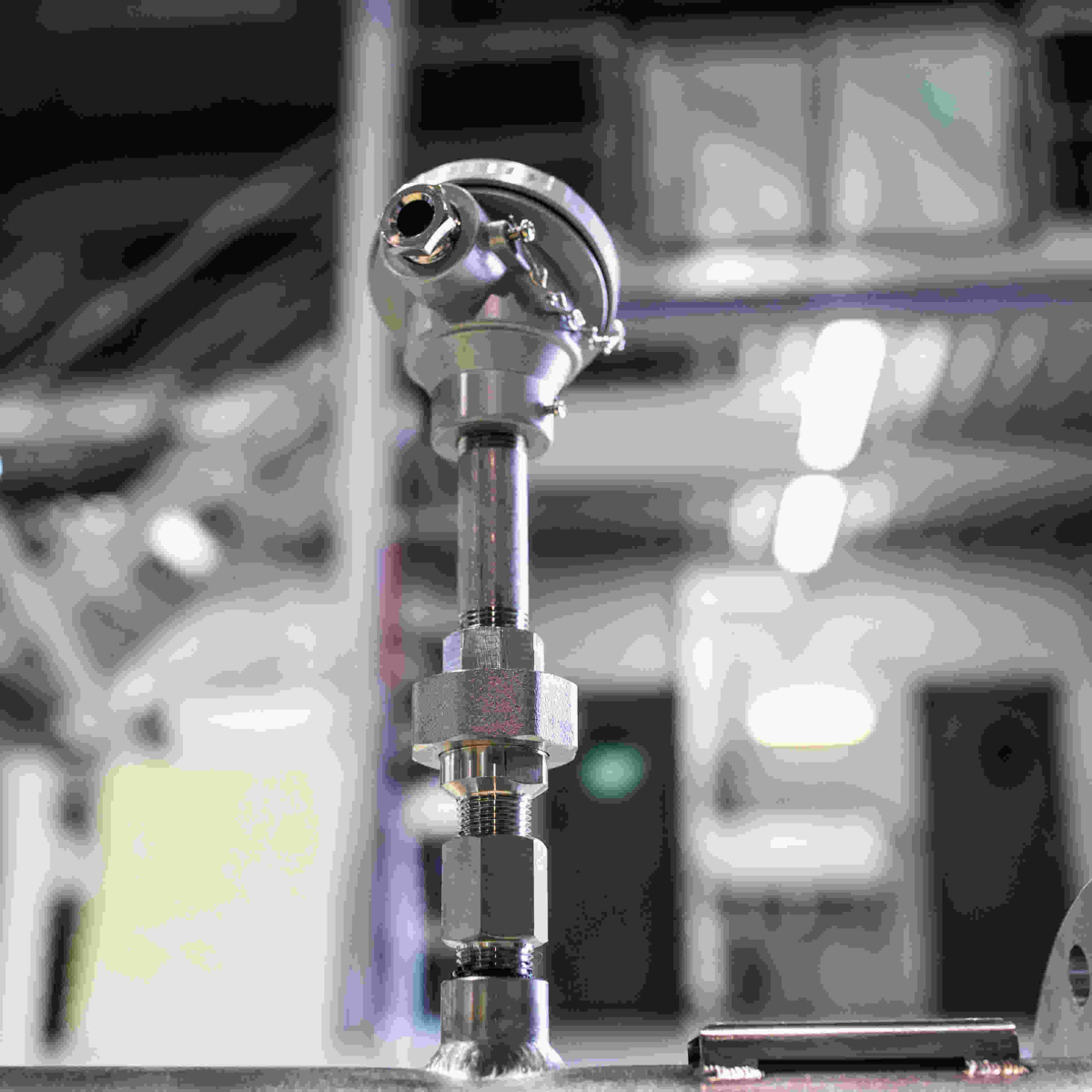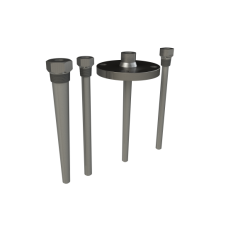The most commonly used is the Pt 100 Ohm probe
The resistance probe offers a measurement of great accuracy and very good long-term stability.
A Pt 100 Ohm probe corresponds to a platinum resistance whose initial value is 100 Ohms for a temperature of 0°C.
The measuring element consists of wound platinum wires whose resistance varies according to the temperature. The resistance / temperature correspondence is documented in the IEC 60751 standard.
The temperature probe is often delivered with a connection head (see photo opposite).
| RESISTANCE PROBE | ||
|---|---|---|
| Measuring scale | From -200 ° C to + 600 ° C | |
| Protection tube | Stainless steel | |
| Diameter of the immersion | Up to 8 mm | |
| Useful length of the immersion | Up to 1000 mm | |
| Connection | Standard single element 3 or 4 wires or double element on request | |
| IP protection rating | Up to IP68 | |
| Electric approval | ATEX explosion-proof or intrinsically safe on request | |
| Accuracy | Class A according to CEI 751 / NF EN 60751 | |
If you do not find the answer you are looking for, please contact us either by phone at +33 (0)5.59.30.85.20 or via the contact form. We will respond as soon as possible.
The choice of probe type depends on your application. A resistance probe is more accurate than the thermocouple and has a very good measurement stability. Moreover, it enjoys excellent repeatability of the measurement. See here our comparison chart.


